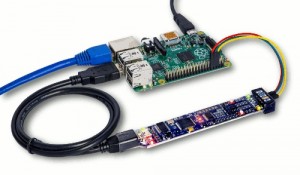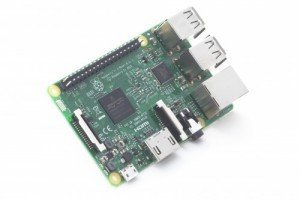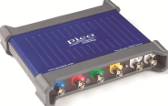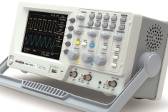
Also working with Windows and Linux PCs, and Macs; BitScope Micro is also an eight channel logic analyser, a signal generator, clock generator and spectrum analyser.
Sampling rate is up to 40Msample/s, and analogue bandwidth is 20MHz.
The software supports frame rates beyond 20Hz and includes a ‘digital phosphor’ display mode. Resolution is up to 12bits.
Standard scope probes can be used because tnput impedance is 1MΩ/10pF, providing an adapter is constructed to connect a BNC connector to the 10pin 0.1inch header that provides all of the Micro’s instrumetation connections. Logic analyser input impedance is 100kΩ. The full spec is here.
Included in the box are 10 mixed signal test clips and a USB cable permanently attached to the scope board.
“There has long been a requirement in the market for an entry-level oscilloscope to support the maker community, and Raspberry Pi specifically, said Farnell director of test gear Chris Godfrey. “This model from BitScope has all the functionality required for a plug and play oscilloscope.”
While the hardware plugs together easily, it is not quite plug-and-play as appropriate software has to be downloaded for the Raspberry Pi and then installed – the process scheduled to be tested on Electronics Weekly’s Engineer in Wonderland blog.
BitScope has been compatible with Raspberry Pi for a year, and instructions for connecting the two together are here.
Price is £89.00.
BitScope is not the only PC-based instrument maker to realise Raspberry Pi’s potential as test gear. UK scope maker Pico Technology has Raspberry Pi drivers for its DrDAQ USB data logger, and has a Raspbery Pi SDK for its PicoScope 3000 series.
A note on the picture above: only the USB connection is required. The phot shows the scope input leads hooked up to Raspberry Pi I/O pins for no particular reason.
 Electronics Weekly Electronics Design & Components Tech News
Electronics Weekly Electronics Design & Components Tech News


